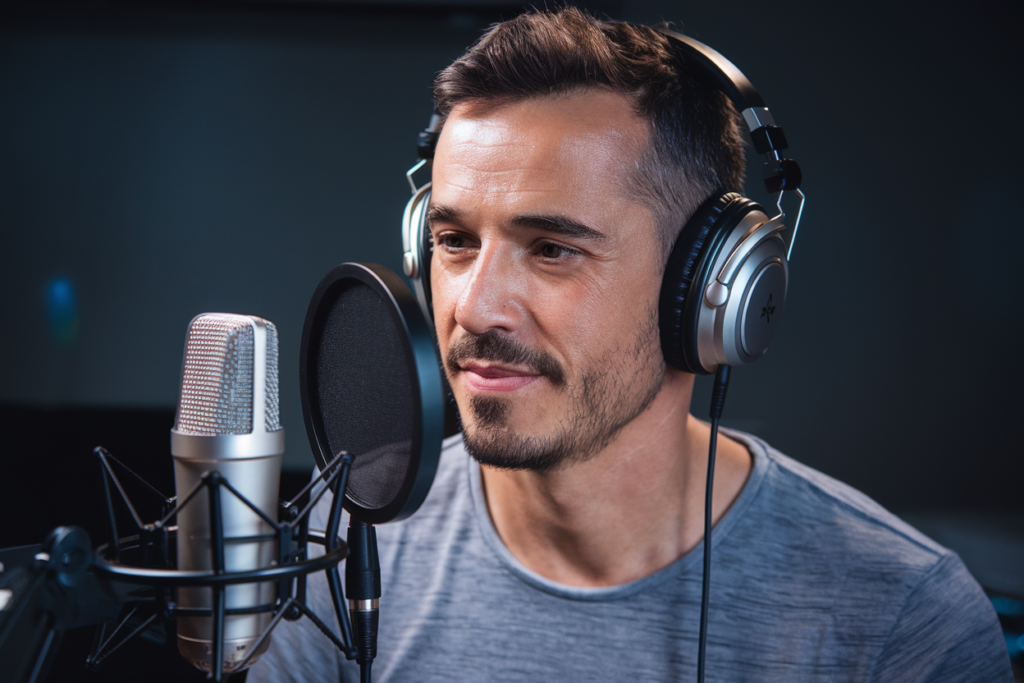Portuguese voice overs involve recording audio in Portuguese for various media formats such as commercials, eLearning materials, audiobooks, films, video games, and more. These services are tailored to convey content effectively to audiences who speak Portuguese, whether in Portugal, Brazil, or other Portuguese-speaking regions.
Voice overs in Portuguese are not just about translating scripts but ensuring cultural relevance, proper tone, and emotional resonance to engage the target audience.
Importance of Portuguese Voice Over Services
- Reaching Portuguese-Speaking Markets: With over 250 million speakers globally, Portuguese is one of the most widely spoken languages. Portuguese voice overs help brands connect with this vast audience.
- Enhancing Cultural Relevance: Professional voice actors ensure the content resonates with the local culture, be it Brazilian Portuguese or European Portuguese.
- Professionalism and Quality: High-quality voice overs add credibility to brands and create a lasting impression.
Language Variants in Portuguese Voice Overs
Portuguese has two main variants:
- Brazilian Portuguese: Characterized by its unique pronunciation, vocabulary, and melody, Brazilian Portuguese is the most commonly spoken form, especially in media and entertainment.
- European Portuguese: Spoken in Portugal, this variant has a distinct rhythm and vocabulary that differs significantly from Brazilian Portuguese.
Professional voice over providers understand these differences and tailor their services to meet the linguistic and cultural needs of the target audience.
Accents and Dialects in Portuguese Voice Overs
Portuguese has a wide range of regional accents and dialects that vary between and within Brazil and Portugal:
Common Accents in Brazilian Portuguese
- Carioca (Rio de Janeiro): Known for its melodic tone and distinctive “s” sounds.
- Paulista (São Paulo): A more neutral accent, commonly used in business settings.
- Nordestino (Northeast Brazil): A unique, warm accent with influences from indigenous and African languages.
Accents in European Portuguese
- Lisbon Accent: Considered standard and widely recognized in Portugal.
- Northern Portuguese Accent: Heavier intonations, with influences from Galician.
Adapting to Regional Preferences
Choosing the right accent or dialect is crucial for targeting specific regions. For example, a Brazilian audience might prefer a Paulista accent for corporate training, while a Rio de Janeiro accent might be ideal for a casual commercial.
Key Applications of Portuguese Voice Over Services
- Advertising and Marketing: From TV commercials to online ads, voice overs help convey brand messages in a relatable way.
- eLearning and Training: Educational content, including corporate training and tutorials, often requires voice overs to ensure comprehension and engagement.
- Audiobooks and Podcasts: A professional Portuguese voice actor brings characters and stories to life while ensuring proper pacing and tone.
- Entertainment and Media: Films, animations, and video games rely heavily on skilled voice actors to deliver authentic performances.
Finding the Right Portuguese Voice Over Talent
Essential Qualities to Look For
- Native Fluency: Ensure the voice actor is a native speaker of the intended Portuguese variant.
- Versatility: The ability to adapt to different tones, styles, and characters.
- Cultural Awareness: Understanding cultural nuances to avoid miscommunication.
- Technical Expertise: Experience with recording equipment and editing software for high-quality output.
Professional Services vs. Freelancers
- Professional Agencies: Offer a wide pool of vetted talent, quality assurance, and support for large-scale projects.
- Freelancers: A more budget-friendly option for smaller or one-off projects, though quality and reliability may vary.
Portuguese voice overs are a powerful way to connect with diverse audiences and ensure your message resonates across Portuguese-speaking markets.







